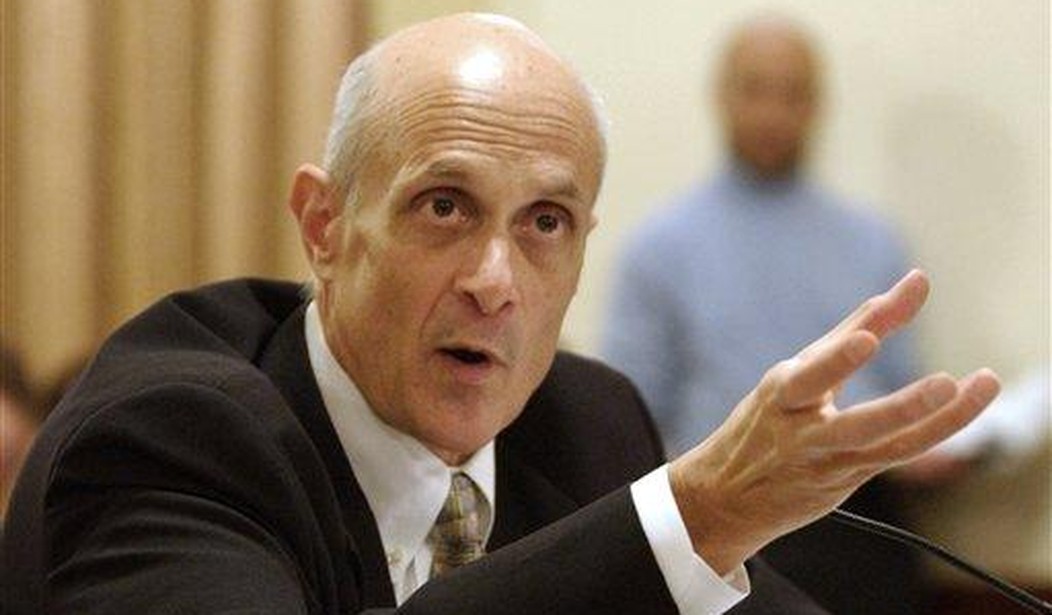Following the leak last May of the Supreme Court decision in Dobbs vs. Jackson Women’s Health Organization that overturned Roe vs. Wade, the court set up an inquiry into the breach in protocol and swore to find the leaker.
The Marshal’s office of the Supreme Court proved to be woefully inadequate in investigating the incident, so they called in outside help. After interviewing 82 employees in depth — including checking their phones — attention turned to the justices themselves. Marshal Gail Curley — a woman with no investigative experience to speak of — interviewed the nine justices and, after a cursory round of questions, cleared them all of wrongdoing.
If this sounds like a coverup, it’s because it almost certainly is. We know this because the court hired an old friend to vouch for the thoroughness and professionalism of the slipshod, amateurish investigation.
It turns out that the “independent” oversight of the report and its conclusions were carried out by former Homeland Security Secretary Michael Chertoff. And Chertoff had a prior relationship with the court. His risk assessment company, run by his brother David, the Chertoff Group, performed more than a million dollars worth of risk assessments, from the justices’ personal security to recommendations on COVID-19 protocols followed at the court.
The estimated payments to Chertoff’s risk assessment firm, for consultations that extended over several months and involved a review of the justices’ homes, reached at least $1 million. The exact amount of money paid could not be determined. Supreme Court contracts are not covered by federal public disclosure rules and elude tracking on public databases.
The justices have long cloaked themselves in secrecy to the point of declining to respond to questions about potential conflicts of interest, or to reveal information about some court rules and ethics codes; or to release timely information about the justices’ health and public appearances.
Chertoff was the public front of an effort to assure the public that the investigation was on the up and up. Chertoff gave his seal of approval to the investigation despite gaping holes in the final report released by the Marshal’s office.
“It’s at least a valid question why they went to someone who had a relationship with the court. Can we be sure he is objective? That’s part of the reason for disclosures,” Sean Moulton, a senior policy analyst at the Project on Government Oversight, told CNN.
The investigation did not reveal the leaker, but did show the breakdown in security that might have led to the leak.
Meanwhile, Mr. Chertoff signed off on the validity of the report.
In a one-page public statement issued with the report, Chertoff wrote that Roberts had asked him “to independently review and assess the thoroughness of the investigation into the Dobbs draft opinion leak and to identify any additional useful investigative measures as well as actions that would improve the handling of sensitive documents in the future.”
The Supreme Court’s own statement on the matter emphasized that Chertoff had concluded that Curley “undertook a thorough investigation” and that Chertoff had declared that “at this time, I cannot identify any additional useful investigative measures.”
The connections that Chertoff enjoyed with several conservative justices go back decades. Chief Justice John Roberts and Chertoff attended Harvard Law at the same time and then were law clerks in successive years at the 2nd Circuit Court of Appeals. Chertoff served with Justice Alito in 2003 on the 3rd Circuit Court of Appeals before being tapped to serve as Homeland Security secretary.
If I were John Roberts and I needed someone to whitewash a sketchy report that may have pointed to a justice of the Supreme Court as a source of a historic leak, I would have called my long-time friend Michael Chertoff to do my dirty work.










